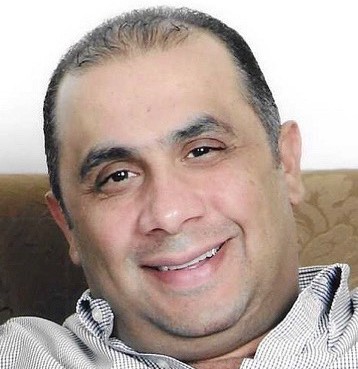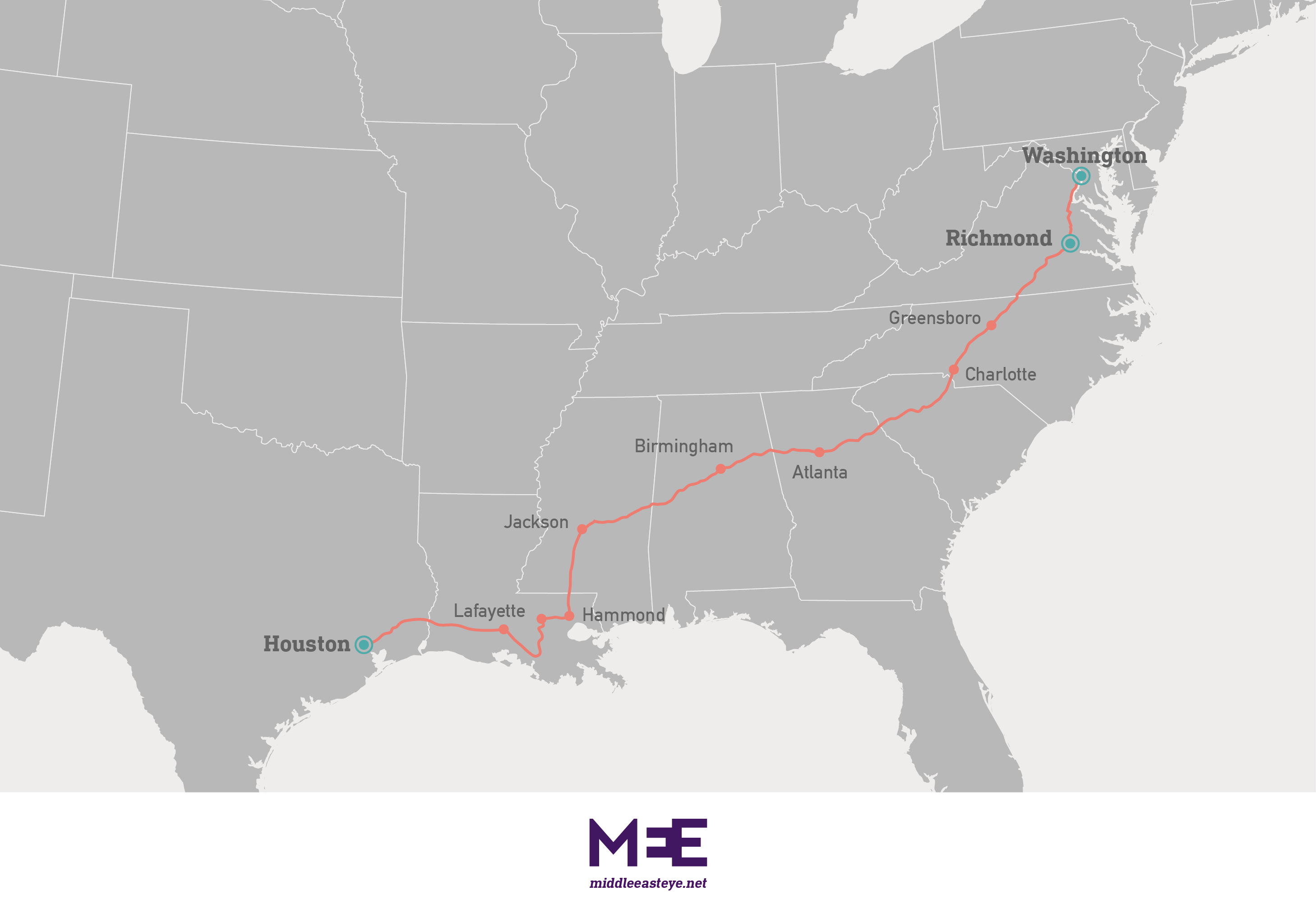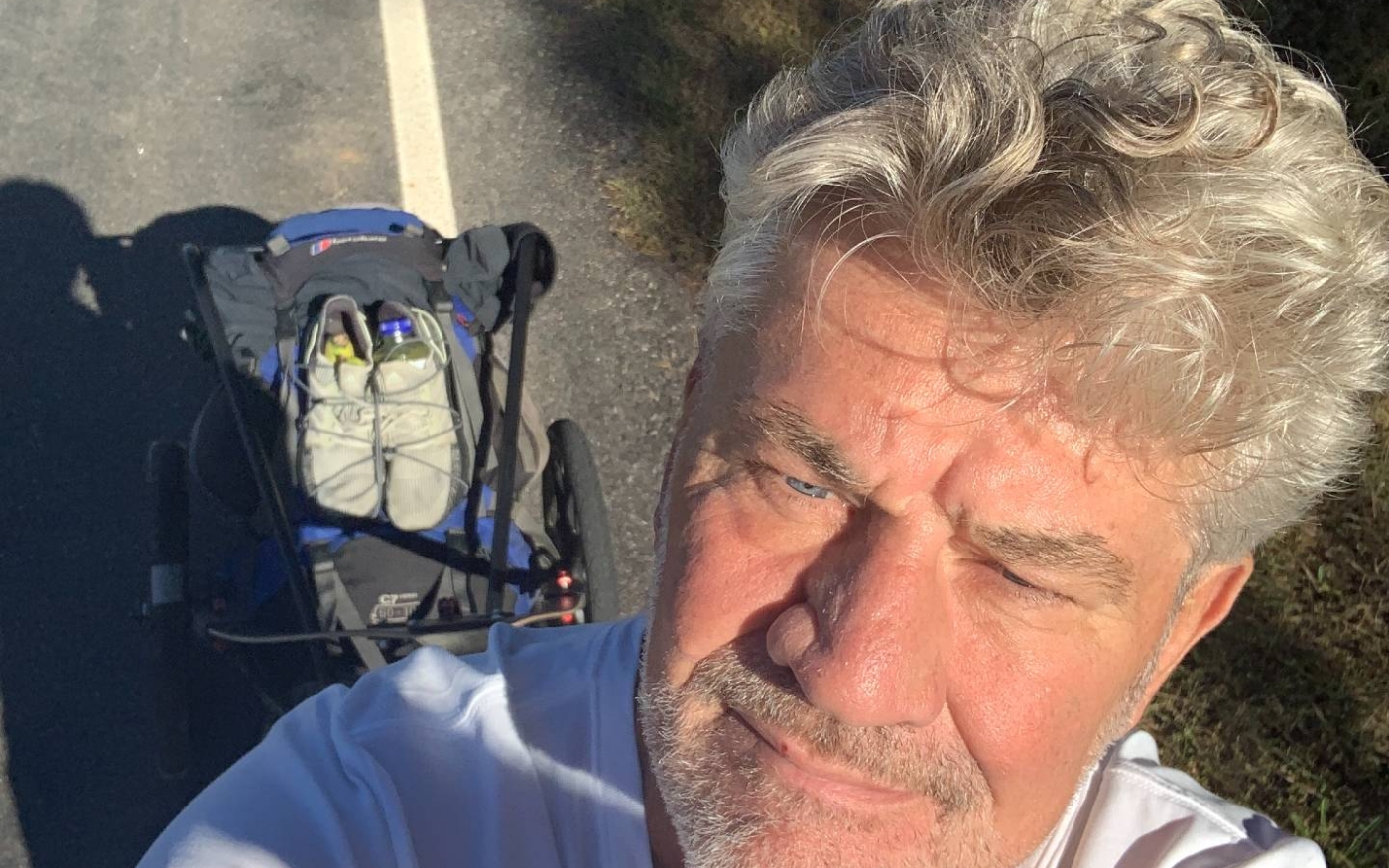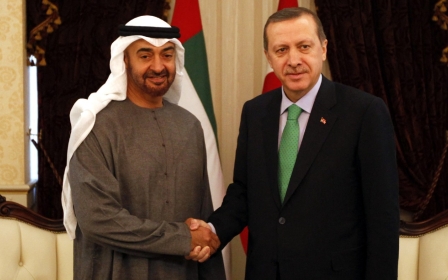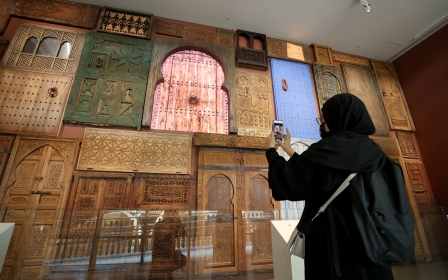British activist treks across US to demand UAE release jailed businessman
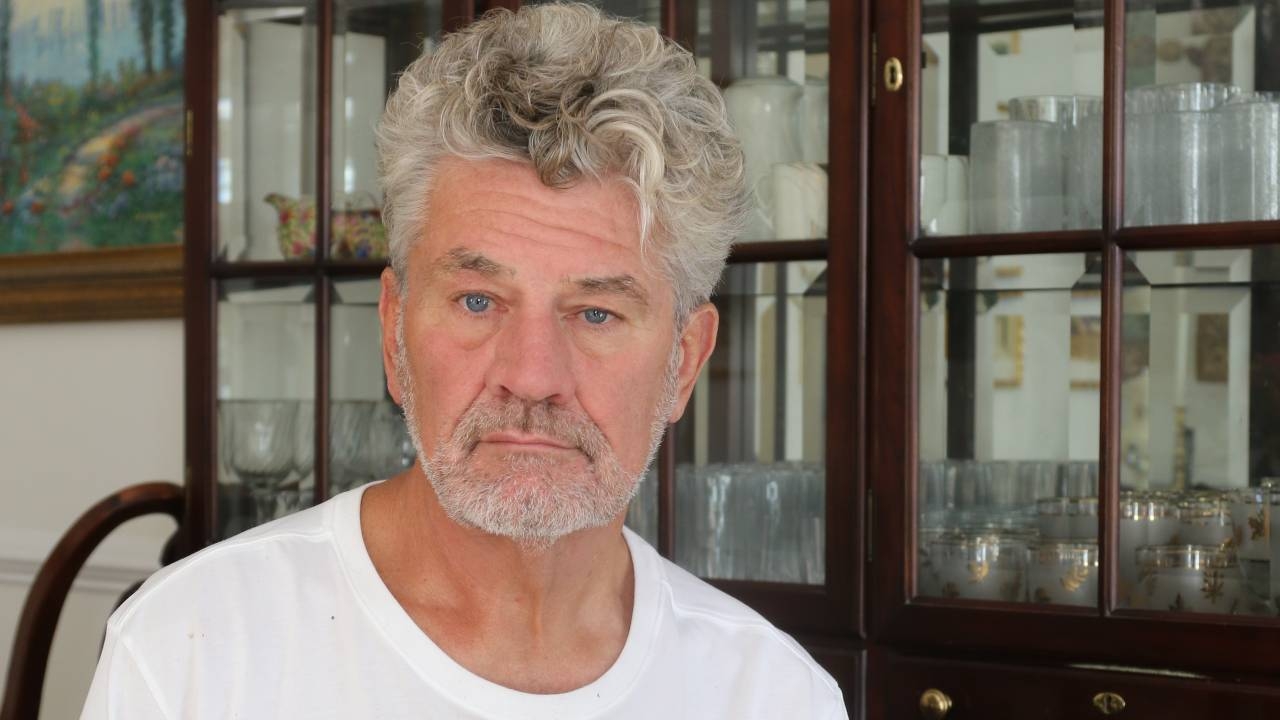
Martin Lonergan has walked more than two thousand kilometres across much of the southern United States - braving hurricane-force winds, being bitten by a venomous snake, and suffering temporary blindness.
Still, nothing he's faced in his arduous two-month trek from Houston, Texas to Washington compares with his nine-month stint at al-Awir prison in the United Arab Emirates (UAE).
"It's been physically and mentally one of the hardest things I've had to do," Lonergan told Middle East Eye. "I've been on the road for two months and I've covered around 1,600 to 1,700 miles."
And now, as Lonergan reaches his final destination of Washington, he hopes that his walk will raise much-needed awareness about the case of Zach Shahin, an American businessman currently serving a 53-year prison sentence in the UAE.
This week, he will head to Washington and submit applications calling for the US Treasury Department to issue Global Magnitsky Sanctions on the Emirati officials responsible for the imprisonment and treatment of Shahin and two other businessmen.
New MEE newsletter: Jerusalem Dispatch
Sign up to get the latest insights and analysis on Israel-Palestine, alongside Turkey Unpacked and other MEE newsletters
"I promised these guys that I would do everything I could to try to bring to light the injustice that they've suffered and the horrendous conditions in which they exist," Lonergan said.
UAE prison conditions
The idea for the trek came out of a conversation between Lonergan and Shahin earlier this year, the activist told MEE.
According to Lonergan, Shahin warned that he was going to commence his second hunger strike - his first was in 2012 - but this time he did not care if he died.
Lonergan said he offered an alternative: "What if I walked from Houston to Washington and submitted a Magnitsky sanctions application? Would you end the hunger strike then?"
"So he tells me that if I could walk from Houston to Washington, which he said was impossible, and I could endure that, that he would suspend the hunger strike and let me hand in the Magnitsky applications."
Lonergan befriended Shahin in prison after the British businessman - who had spent years in Dubai - was arrested in 2020 and accused of financial crimes.
"I had a wonderful life in Dubai, it's a great place to live. But if you fall through that thin veneer and you end up with someone who makes an allegation whether it's founded or unfounded and if they've got some friends, you're going to be in trouble."
Lonergan ended up serving nine months in Dubai's al-Awir prison, where he met Shahin, Charles Ridley, and Ryan Cornelius - three other businessmen who were given decades-long sentences.
Shahin, an American businessman and former PepsiCo executive, is currently serving a 53-year sentence in a Dubai jail for what rights groups have claimed are false allegations made against him by the rulers of Dubai.
He is believed to be serving the longest sentence of any American in a foreign country charged with a white-collar crime and has faced inhumane treatment, according to the rights group Detained International.
Rights groups and UN experts have issued concerns over the UAE's imprisonment of human rights workers as well as over the prison conditions that some inmates face - including Ahmed Mansoor, a 51-year-old Emirati engineer, poet, and father of four, who has been detained since 2017. He was convicted in 2018 on charges of insulting the "status and prestige of the UAE and its symbols", including its leaders.
A damning report published by Human Rights Watch in January found that Mansoor spent the past four years entirely alone in a two-metre by two-metre cell.
Prisoners in the UAE have also reportedly been subject to numerous other abuses, including revocation of medicine, beatings and sleep deprivation, according to the Emirati Centre for Human Rights.
Last year, US Congressman Jim McGovern, co-chair of the Tom Lantos Human Rights Commission, called for the release of Abdulsalam Mohamed Darwish al-Marzooqi, an Emirati prisoner of conscience, who was arrested and imprisoned during the country's infamous "UAE 94" trial.
From Houston to Washington
Upon his release, Lonergan travelled to Houston, Shahin's hometown. After spending some time with his family, he set off on the roughly 1,700-mile journey to advocate for his release.
He set a pace of walking at least 25 miles (around 40km) every day, roughly the length of a marathon, and stopped in nearly a dozen cities. He spent nights either at motels or sleeping in a tent. Due to severe dust getting into his eyes, he lost his sight temporarily, but thanks to some rest on a stopover in Richmond, Virginia, he was grateful to be able to see again.
When he was walking through Louisiana, a hurricane hit the area, forcing him to sleep in an abandoned car dealership because the rains and winds were too heavy to set up his tent.
He described those nights as "soul-destroying".
"I'm surprised how lonely it was. You're in a huge country, walking through towns, thousands and thousands of American cars drove past me but it's the loneliest thing I've ever done," Lonergan said.
"It was more lonely than when I was in al-Awir, as terrible as it was."
Magnitsky sanctions
Lonergan is hoping to use the Global Magnitsky Human Rights Accountability Act, a US law passed in 2012 that allows the president to investigate and impose sanctions for rights violations, including extrajudicial killings.
The legislation was named after Sergei Magnitsky, a Russian lawyer who died in police custody in Moscow in 2009 after pushing to expose corrupt tax dealings. The Magnitsky Act came into fruition out of the lobbying efforts of the lawyer's client, Bill Browder, an American businessman.
Citing the Magnitsky law, the application Lonergan is submitting will call on the US to blacklist a number of UAE officials accused of abusing human rights.
Now, as he reaches the end of his walk, David Haigh, founder of Detained International and the human rights lawyer working with Lonergan, says the campaign to free Shahin can go into full swing.
"Martin has done his friend Zack proud," said Haigh, who also serves as a legal advisor to Dubai Princess Latifa bint Mohammed al-Maktoum.
"With this mammoth trek nearing the end, we are finalising our request, with the assistance of Bill Browder under Magnitsky legislation, for US sanctions against several despicable individuals in the Dubai regime of HH Sheikh Mohammed Al Maktoum for their grave abuses of Zack's basic human rights.
"It will take worldwide media pressure on Dubai, and for US politicians and lawmakers to call for the immediate release of Zack. And we will be calling on them to do just that."
The UAE embassy in Washington did not respond to Middle East Eye's request for comment.
Middle East Eye delivers independent and unrivalled coverage and analysis of the Middle East, North Africa and beyond. To learn more about republishing this content and the associated fees, please fill out this form. More about MEE can be found here.


